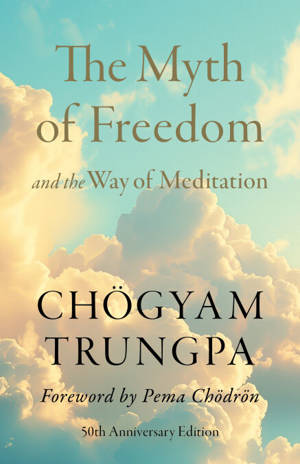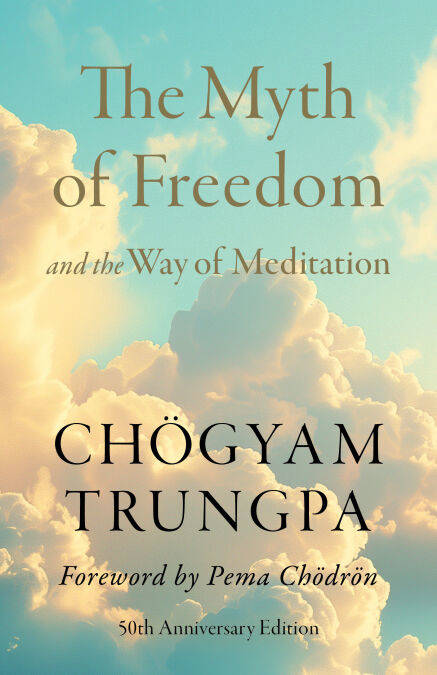
Bedankt voor het vertrouwen het afgelopen jaar! Om jou te bedanken bieden we GRATIS verzending (in België) aan op alles gedurende de hele maand januari.
- Afhalen na 1 uur in een winkel met voorraad
- In januari gratis thuislevering in België
- Ruim aanbod met 7 miljoen producten
Bedankt voor het vertrouwen het afgelopen jaar! Om jou te bedanken bieden we GRATIS verzending (in België) aan op alles gedurende de hele maand januari.
- Afhalen na 1 uur in een winkel met voorraad
- In januari gratis thuislevering in België
- Ruim aanbod met 7 miljoen producten
Zoeken
€ 19,66
+ 19 punten
Uitvoering
Omschrijving
Freedom is generally thought of as the ability to achieve goals and satisfy desires. But what are the sources of these goals and desires? If they arise from ignorance, habitual patterns, and negative emotions, is the freedom to pursue these goals true freedom—or is it just a myth?
In this book, Chögyam Trungpa explores the meaning of freedom in the profound context of Tibetan Buddhism. He shows how our attitudes, preconceptions, and even our spiritual practices can become chains that bind us to repetitive patterns of frustration and despair. He also explains how meditation can bring into focus the causes of frustration, and how these negative forces can aid us in advancing toward true freedom.
Trungpa's unique ability to express the essence of Buddhist teachings in the language and imagery of contemporary American culture makes this book one of the best sources of the Buddhist doctrine ever written.
This edition also contains a foreword by Pema Chödrön, a close student of Chögyam Trungpa and the best-selling author of When Things Fall Apart.
In this book, Chögyam Trungpa explores the meaning of freedom in the profound context of Tibetan Buddhism. He shows how our attitudes, preconceptions, and even our spiritual practices can become chains that bind us to repetitive patterns of frustration and despair. He also explains how meditation can bring into focus the causes of frustration, and how these negative forces can aid us in advancing toward true freedom.
Trungpa's unique ability to express the essence of Buddhist teachings in the language and imagery of contemporary American culture makes this book one of the best sources of the Buddhist doctrine ever written.
This edition also contains a foreword by Pema Chödrön, a close student of Chögyam Trungpa and the best-selling author of When Things Fall Apart.
Specificaties
Betrokkenen
- Auteur(s):
- Uitgeverij:
Inhoud
- Aantal bladzijden:
- 176
- Taal:
- Engels
Eigenschappen
- Productcode (EAN):
- 9780834846395
- Verschijningsdatum:
- 1/12/2025
- Uitvoering:
- E-book
- Beveiligd met:
- Adobe DRM
- Formaat:
- ePub

Alleen bij Standaard Boekhandel
+ 19 punten op je klantenkaart van Standaard Boekhandel
Beoordelingen
We publiceren alleen reviews die voldoen aan de voorwaarden voor reviews. Bekijk onze voorwaarden voor reviews.









